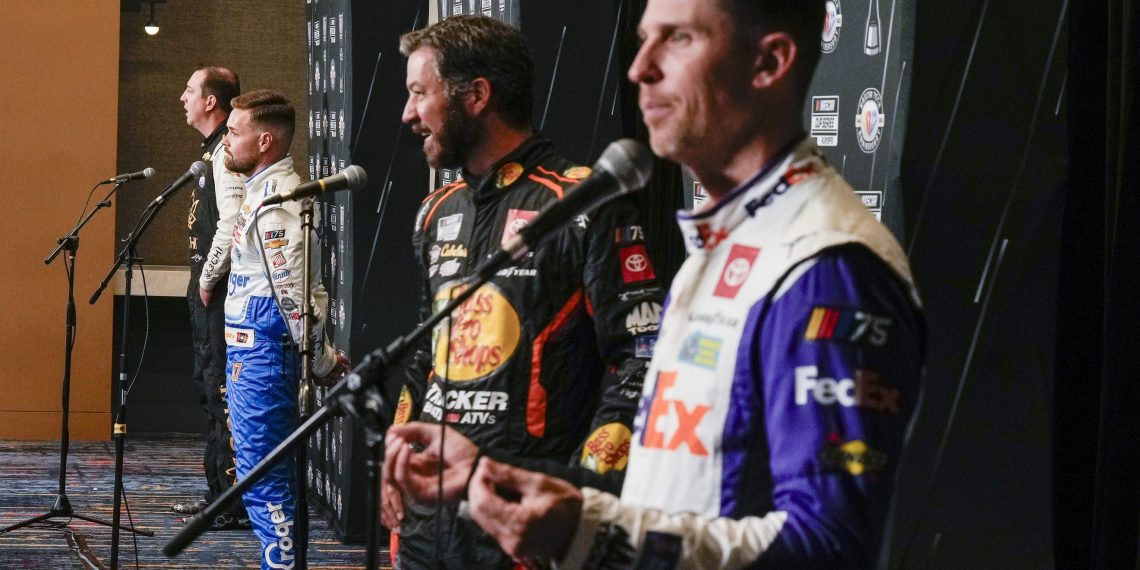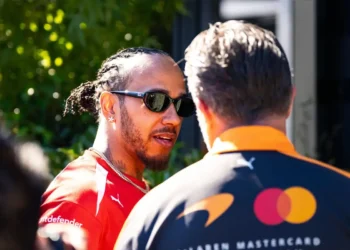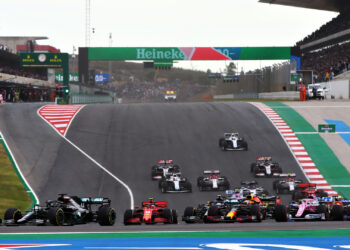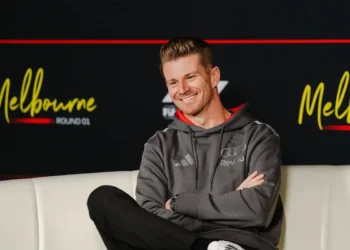NASCAR’s decision to implement the controversial ‘Open Exemption Provisional’ rule has ignited a firestorm of debate within the motorsport community. While aimed at attracting global talent and boosting visibility, critics argue the move undermines the sport’s competitive integrity, with veterans like Jimmie Johnson forced to qualify for the Daytona 500 while celebrity drivers like Helio Castroneves are guaranteed a spot.
The Rule in Question
The Open Exemption Provisional allows NASCAR to expand the grid to 41 cars, giving a guaranteed starting position to a world-class driver from another discipline, even if they fail to qualify. This new rule, part of NASCAR’s efforts to broaden its appeal, has already paved the way for Castroneves’ Daytona 500 debut under Trackhouse Racing’s Project 91. However, the Brazilian’s inclusion without meeting the rigorous qualification standards has drawn sharp criticism from fans, drivers, and insiders alike.
Denny Hamlin, co-owner of 23XI Racing, took to X (formerly Twitter) to express his disbelief, simply writing, “Lol. Wow.” His succinct reaction summed up the sentiments of many who view the rule as a betrayal of NASCAR’s competitive ethos.
A Double Standard for Drivers?
The backlash isn’t about Castroneves’ credentials—few drivers boast a resume as decorated as the four-time Indianapolis 500 winner and three-time Rolex 24 champion. Instead, it’s the perceived double standard that’s fueling the outrage. While Castroneves is handed a provisional entry due to his celebrity appeal, Jimmie Johnson, a seven-time Cup Series champion and two-time Daytona 500 winner, must fight through the qualification process.
This perceived inequality has left fans questioning NASCAR’s priorities. One frustrated fan wrote in response to Hamlin’s post: “How can you give a free pass to someone who hasn’t raced in NASCAR in two decades while forcing one of the greatest to prove himself again?”
Celebrity vs. Competition
For many, the Daytona 500 is a sacred event—a “crown jewel” where starting positions should be earned on merit. NASCAR’s decision to prioritize star power over traditional qualification raises uncomfortable questions about the sport’s direction. Is NASCAR sacrificing its integrity to boost ratings and global appeal?
If the roles were reversed, would Formula 1 or IndyCar extend a similar courtesy to a NASCAR driver like Kyle Larson? Most would argue no, as such moves clash with the principles of fair competition.
The Broader Implications
While the immediate goal of increasing viewership might be met, the long-term consequences could be damaging. By bending rules to accommodate celebrity drivers, NASCAR risks alienating its core fanbase and tarnishing its reputation on the international stage. Critics warn that such moves send the message that popularity trumps performance, a narrative that could erode the sport’s credibility.
Fan and Driver Backlash
The new rule has sparked widespread anger on social media, with fans labeling it a “disrespect” to seasoned drivers who have earned their place. Some even pointed out that this sets a dangerous precedent, where all it takes for a driver to join the Cup Series is global fame rather than actual skill in stock car racing.
The Verdict: A Dangerous Precedent?
NASCAR finds itself at a crossroads. The Open Exemption Provisional could attract new fans and bring global attention, but it comes at the potential cost of losing the trust and respect of its loyal followers. For now, the backlash surrounding Helio Castroneves’ Daytona 500 entry serves as a reminder that in motorsport, integrity and merit should always take the checkered flag.










